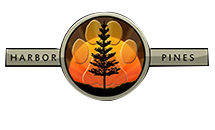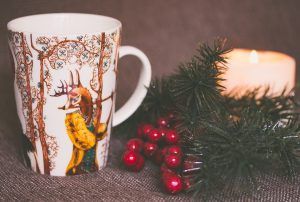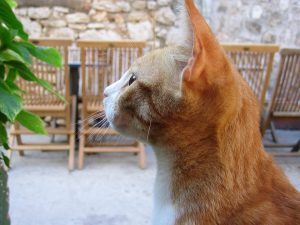
Christmas and New Years – Common dangers to pets
The holidays are a time for joy and family – but they also pose some unique dangers to members of our four-legged family! Fortunately, these hazards to your pet’s health can be entirely avoided with a little bit of careful planning. In this article, you will learn about the most common dangers to your pet’s health over the Christmas and New Year’s holidays, along with a few helpful tips on how to keep your pets happy and safe over the holidays!
Plants
Holly and Mistletoe are very common during the winter holidays, but they are both toxic to pets. Mistletoe can cause gastrointestinal issues and even cardiovascular problems, while holly can cause nausea, vomiting and diarrhea.
The Christmas tree also has associated dangers – the oils on the tree can be irritating to your pet’s mouth or stomach. We’d recommend making sure your pet can’t access or climb on the tree. This will also eliminate the danger of your pet tipping the tree over. Be sure to pick up any pine needles from the floor – ingesting these can cause punctures in your pet’s intestines. Also, many people are decorating their trees with “flocking” which is an imitation snow product. If your pet ingests this in larger quantities, it can cause serious problems.
Also keep in mind that cats are often attracted to tinsel, which can cause intestinal blockage if ingested. Intestinal blockage is a very serious medical condition that usually requires surgery. Look for signs of chewing on the Christmas tree wiring – chewing on these cords can cause injury to your pet’s mouth.
A few other plants that can be harmful to pets:
- Poinsettias
- Amaryllis
- Daffodils
- Lillies
Escape
New Year’s Eve can cause quite a bit of stress in pets because of the commotion, strangers, and fireworks. It’s important to make simple accommodations for your pet for two reasons. First, it will avoid any unnecessary emotional distress for your loving pet. Second, stress from the night can cause your pet to seek escape. Holidays with fireworks typically cause spikes in run-aways.
There are two important things to do. The first is to set up a “safe room” for your pet whenever there is going to be an abnormal amount of commotion. This room should make sure to block any possible exits, have comfortable bedding set up, and soothing music playing.
The second important thing to do is to make sure your pet’s tags and microchip information are both up to date. Microchipping in particular is important – whenever a runaway is taken into a veterinary facility or animal shelter, the pet is scanned for a microchip. Microchips are much more durable than tags, which often come off after they get lost. If your pet isn’t microchipped yet – no problem! Just give us a call now. It’s fast, painless, and inexpensive. The microchip itself is only about the size of a grain of rice!
Food and Drinks
Alcohol is common around the winter holidays, and alcohol poisoning in pets is actually more common than most people think. Alcohol is toxic to pets – please never give your pet any amount of alcohol. Symptoms of mild alcohol poisoning include involuntary urination or defecation. Severe alcohol poisoning symptoms include slowed breathing or heart rate, depression, and even heart attack. Please make sure that your pet is unable to access alcoholic beverages at any time. Alcohol poisoning is a veterinary emergency.
Make sure that your pet doesn’t have access to fatty foods, poultry bones, or raw bread dough. Fatty foods (such as buttery side dishes, gravy, skin or beef fat) can cause severe gastrointestinal distress in your pet, or even pancreatitis, which can be fatal. Poultry bones are brittle and splinter easily, which can cause severe damage to your pet’s intestines. And raw bread dough contains yeast – when ingested, it will convert sugar into carbon dioxide and alcohol in your pet’s stomach. The gas can cause bloating, which is a serious and life threatening condition, requiring immediate veterinary care.
We’ve covered the main dangers to your pet during the holidays, so now you can take a few simple precautions and enjoy the holiday with your two and four legged family members! From all of us here at Harbor Pines, we wish you and yours a very Merry Christmas, and a Happy New Year’s!![]()



